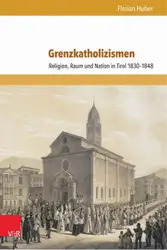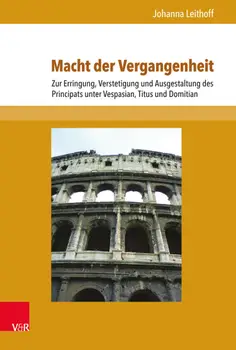After Nero's death and the following civil wars in 68-69 A.D., it was the victor Vespasian, who re-established stability and continuity. What set him apart from his Julio-Claudian predecessors was his origin from a municipal family and his status as a normal member of the senatorial order until his revolt. In this context the legitimisation and presentation of his new position of power was vital for him. The question therefore is how Vespasian and his sons, who succeeded him and came to power under very different circumstances, used the past for their own purposes. This study concentrates on these references to the past with a view to three main aspects: gaining power, which meant dealing with the pretenders of the civil wars on the one and presenting the victory over the Jewish Rebels on the other hand; consolidating the principate, which focuses on the relation between senators and the princeps and the impact of this process on the creation of the 'republican' idea; last, shaping the principate, which concentrates on the role-model-character of the Julio-Claudian principes for Vespasian, Titus, and Domitian.
Über dieses Buch
After Nero's death and the following civil wars in 68-69 A.D., it was the victor Vespasian, who re-established stability and continuity. What set him apart from his Julio-Claudian predecessors was his origin from a municipal family and his status as a normal member of the senatorial order until his revolt. In this context the legitimisation and presentation of his new position of power was vital for him. The question therefore is how Vespasian and his sons, who succeeded him and came to power under very different circumstances, used the past for their own purposes. This study concentrates on these references to the past with a view to three main aspects: gaining power, which meant dealing with the pretenders of the civil wars on the one and presenting the victory over the Jewish Rebels on the other hand; consolidating the principate, which focuses on the relation between senators and the princeps and the impact of this process on the creation of the 'republican' idea; last, shaping the principate, which concentrates on the role-model-character of the Julio-Claudian principes for Vespasian, Titus, and Domitian.
Starten Sie noch heute mit diesem Buch für 0 €
- Hole dir während der Testphase vollen Zugriff auf alle Bücher in der App
- Keine Verpflichtungen, jederzeit kündbar
Autor*in:
Reihe:
Band 19 in Schriften zur politischen KommunikationSprache:
Deutsch
Format:

Jenseits des Illustrativen : Visuelle Medien und Strategien politischer Kommunikation

Wie kommuniziert man Legitimation? : Herrschen, Regieren und Repräsentieren in Umbruchsituationen

Akteure am fremden Hof : Politische Kommunikation und Repräsentation kaiserlicher Gesandter im Jahrzehnt des Wandels am russischen Hof (1720–1730)

Grenzkatholizismen : Religion, Raum und Nation in Tirol 1830–1848

Grundrechte und Religion im Europa der Frühen Neuzeit (16.–18. Jh.)

Kirchenverwaltung und Landesherrschaft : Kirchenordnendes Handeln in der Landgrafschaft Hessen-Kassel im 17. Jahrhundert
